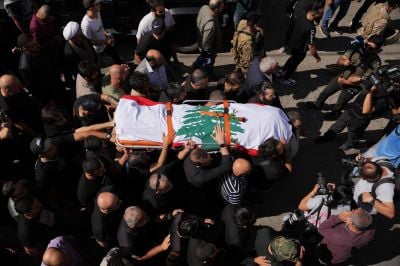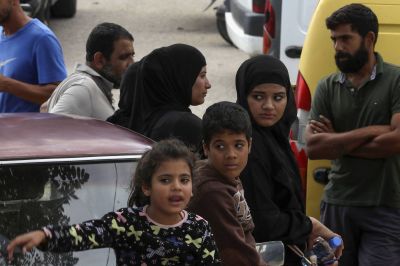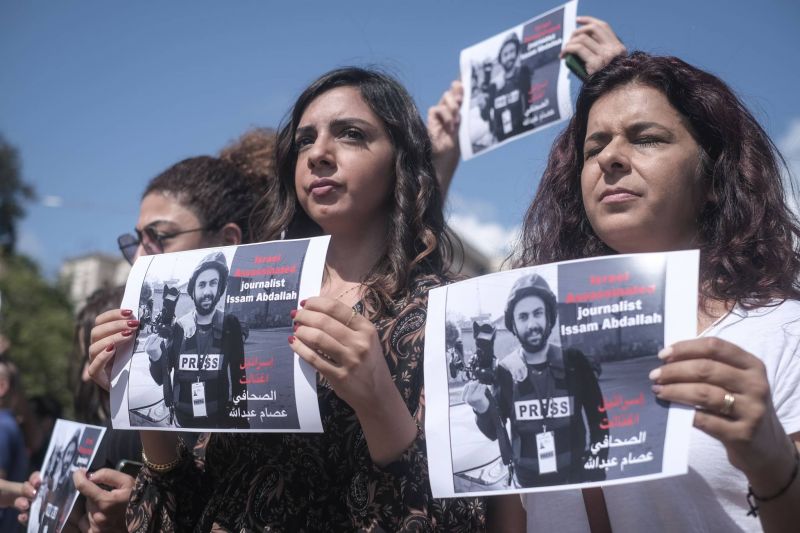
Colleagues stand in solidarity with Lebanese journalist Issam Abdallah, who was killed by Israeli artillery fire on Oct. 13, 2023 while covering clashes at the southern border. (Credit: João Sousa/L'Orient Today)
Click here to read our live coverage.
BEIRUT — On Friday, Oct. 13, Israeli forces fired at least one missile at a group of journalists in Lebanon who had been covering the clashes near the border village of Alma al-Shaab.
The strike, which is still under investigation, killed Reuters videographer Issam Abdallah on the scene and wounded several others.
Edmond Sassine, from LBCI TV, was about 20 meters away that day when the missile struck Issam Abdallah. “The scene was even more horrifying after I survived,” Sassine told L’Orient Today. “When I approached, I saw my colleagues in my own eyes, injured, their gear and cars destroyed.”
The killing has made many journalists, who tell L’Orient Today they were previously willing to go cover the skirmishes in Lebanon’s south, wary of the risks. Several news outlets have already stopped sending correspondents to the border.
What’s now at stake: Lebanese and international media no longer bearing witness to the fighting and damages along the southern border region.
‘A message that has to be communicated’
Sassine said he has previously covered conflicts such as the 2007 fighting in northern Lebanon’s Nahr al-Bared refugee camp, as well as the 2020 war in Nagorno-Karabakh.
For now, he’s still going down to the southern Lebanese border to cover the fighting, despite the risks after Abdallah was killed.
“At the end of the day, there is a message that has to be communicated, and we will continue showing the [full] picture and the truth.”
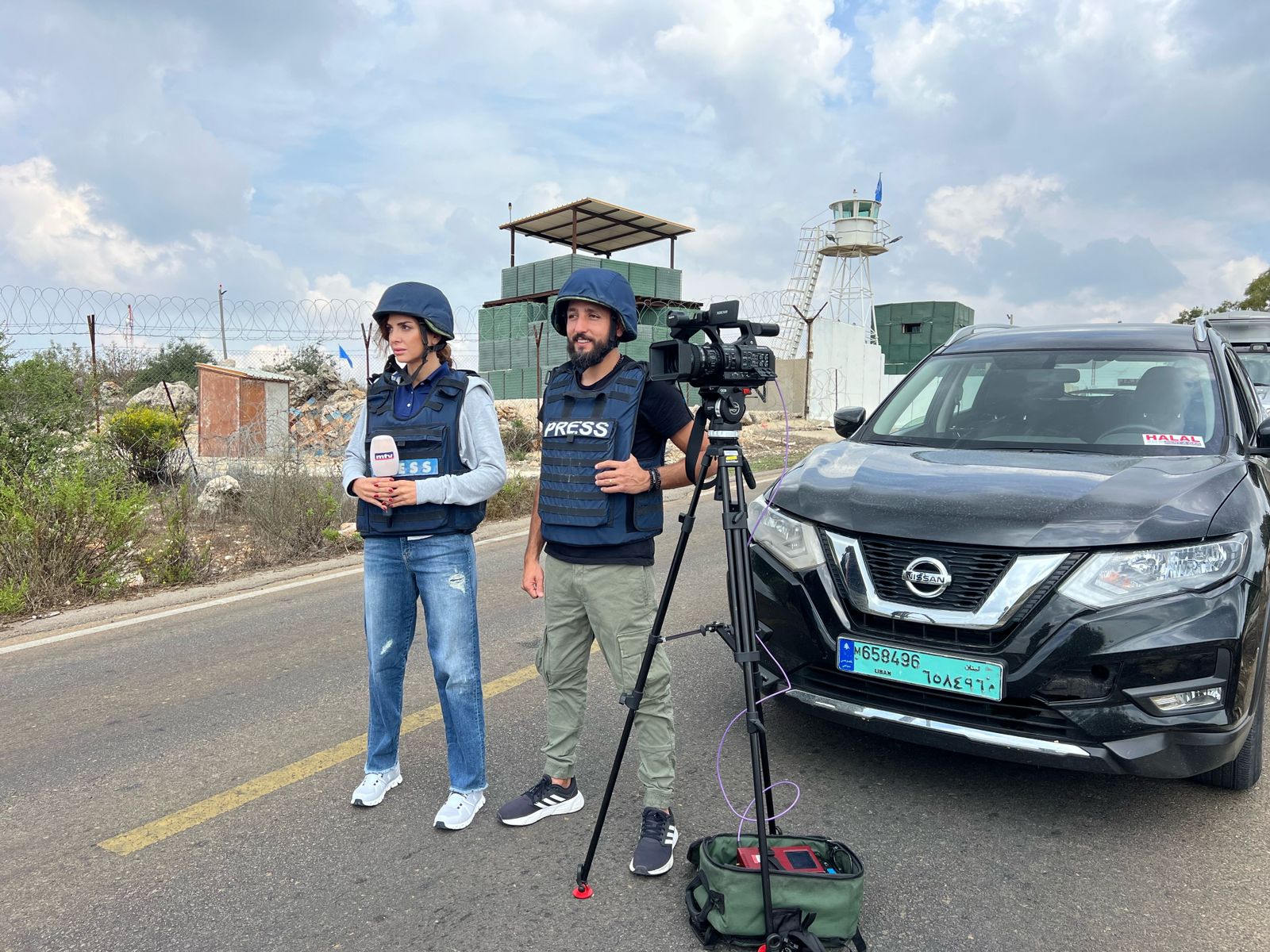 MTV journalist Nawal Berri reports from southern Lebanon in October. (Courtesy of: Nawal Berri)
MTV journalist Nawal Berri reports from southern Lebanon in October. (Courtesy of: Nawal Berri)
After days of watching Al Jazeera live coverage of the border skirmishes between Hezbollah and Israeli forces, MTV news correspondent Nawal Berri decided she couldn’t stay at home any longer. She headed to the field.
Berri ended up staying in the border region for 10 consecutive days.
“I think there is a sense of journalism that makes you feel uneasy if you’re not actually there,” Berri said. “You are driven by adrenaline, you want to follow the sound, you want to show the picture, that’s why some journalists who are driven by passion die.”
Berri also explained that despite her sense of duty, she is very cautious and gets scared easily.
“I don’t like the amusement park, I’m scared of sleeping alone at a house, but during this war I slept alone at a place on the border while there were ongoing clashes.”
“It’s hard to explain.”
“I have to cover the picture when the strikes happen, how they are striking civilian houses, it’s a message to deliver,” Berri added.
Cautions prevail
Alex Spoerndli, a freelance video journalist from Switzerland, said he, like Sassine, still goes to the border area, mainly because of curiosity and because he feels qualified to cover conflict zones in Lebanon.
“I’ve been here for three years, I am very well prepared to cover things like that, I speak decent Arabic, I know my way around the culture, I know my way around how to deal with people … if I didn’t have this feeling, I wouldn’t go.”
On Oct. 13, however, Spoerndli was in Beirut.
But he knows some of the journalists who were targeted, including Issam Abdallah.
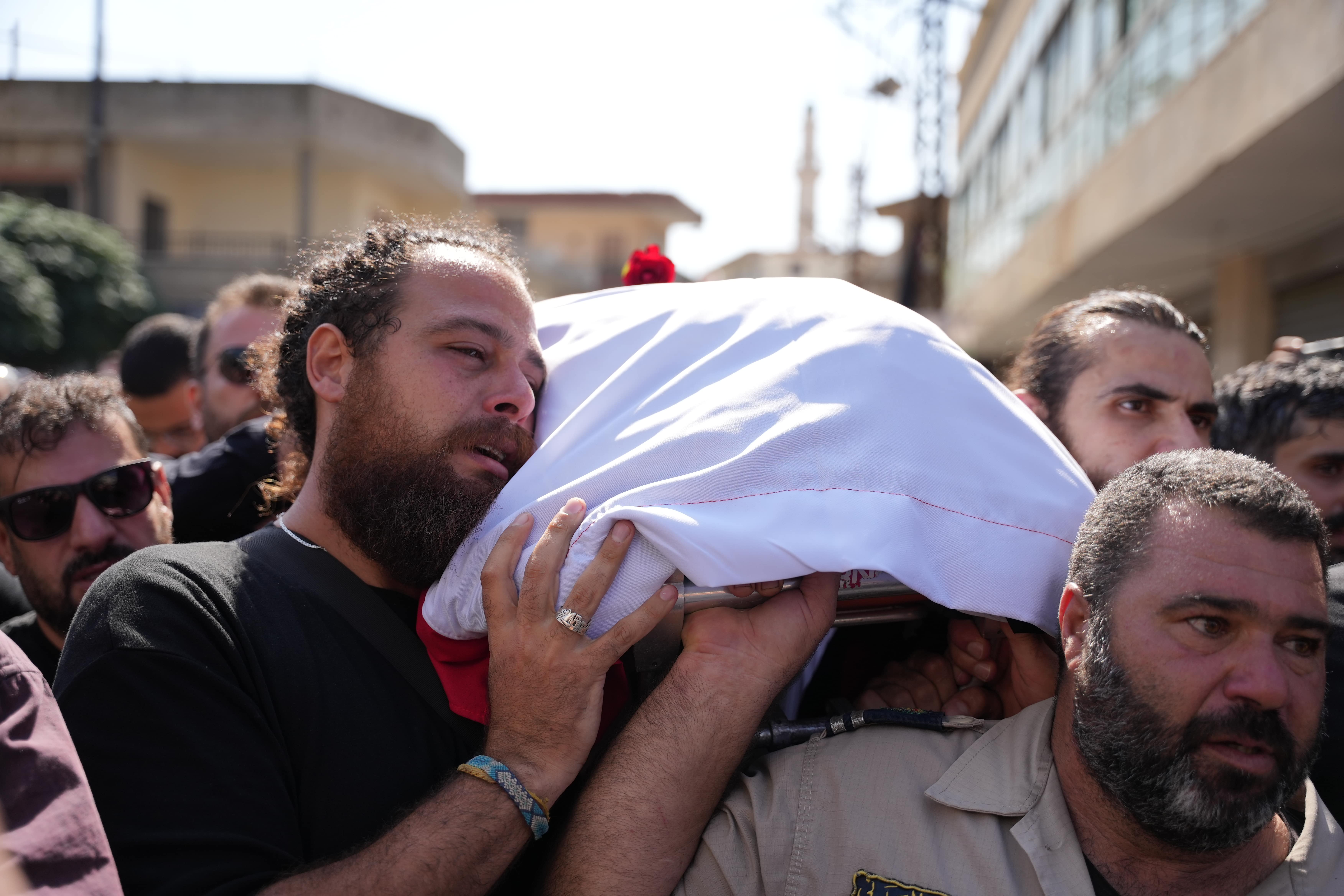 Mourners carry the body of slain Reuters journalist Issam Abdallah in his hometown of Khiam, southern Lebanon, on Oct. 14, 2023. (Credit: Mohammad Abdallah/L'Orient Today)
Mourners carry the body of slain Reuters journalist Issam Abdallah in his hometown of Khiam, southern Lebanon, on Oct. 14, 2023. (Credit: Mohammad Abdallah/L'Orient Today)
“What is super weird and what makes me more afraid is that the Israelis have so many drones in the sky, their intelligence is good … they hit what they want to hit.”
Spoerndli says he fears Israeli forces struck the team of journalists to intimidate other media workers from approaching the border area.
Berri echoed this feeling: “I’m from the south, I’m used to strikes, to the jets’ sound, all the traumas as a kid, they make the scene familiar to me,” she told L’Orient Today.
“However after the killing of Issam, it turned out that we are also a target, we don’t feel safe anymore,” she added.
Spoerndli said that he and his team started taking more precautions after the targeting of journalists. When they drive south, one team member is tasked with monitoring outside the windows, while another person keeps tabs on the news.
According to Spoerndli, coverage of the border area remains important, so that journalists can document the damage wrought on local communities. He and his colleagues try to reach border areas when there are no shells – not to document the actual strikes, but to take stock of the damage.
“It is important to go there as soon as possible because let's say we take a photo of the car of the journalists that got hit a week after it happened, it's not as reliable as to when you do it half an hour after it happened.”
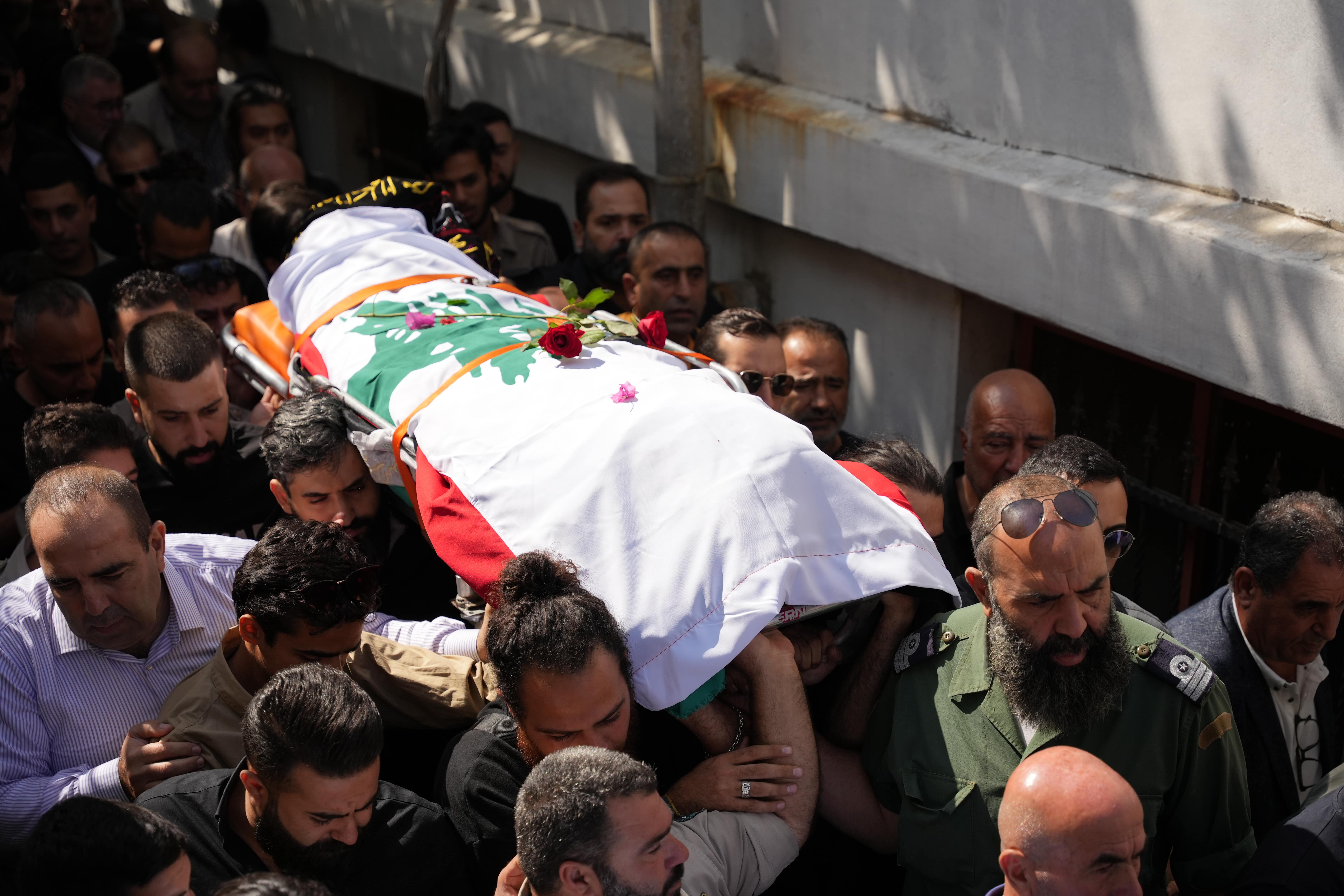
But such work is becoming more difficult, as the cross-border fire intensifies.
“During the first days, it was easier, now it is harder but you still can reach places that are close to the border fence. The matter demands that you be very calm because anxiety can make you do the wrong decisions which can hurt you,” he said.
Still, the anxieties can build, Sassine added. “There should be mental care for those who cover the wars, because seeing all these bodies, bodies of your colleagues, bodies of babies, or to feel that the missile could have hit you is not a detail, it should be treated and followed up upon.”
‘No story is worth your life ‘
Marta Maroto, a Spanish freelance journalist who moved to Lebanon several months ago, found herself for the first time in a country that is experiencing daily clashes on its southern borders.
Maroto said she’s covered uprisings in Chile and Brazil in the past. “But it is the first time that I am close to a war,” she told L’Orient Today. She was in Beirut on Oct. 13.
“I don’t have insurance, I haven’t done a training, I don’t speak the language well and I don’t have a big social circle in case something happens, so I didn’t consider it an intelligent idea to go.”
“Someone needs to tell the world what is happening, but for me, my life doesn’t have a price so I’m not willing to go to the front line, for a picture, for a story.”
Sassine echoed her feelings. “There is no story that is worth your life. Your passion drives you to take the risks, but you have to distinguish being wreckless and suicidal, versus taking measured risks.”
“Risking your life is not the goal, but you are like a soldier serving on duty, they don’t wish they would be on the front line or die but when it happens, it is our duty to go and cover the truth in spite of the dangers it possesses,” Sassine said.
Berri said she is now more conscious of the fact that she wouldn’t want to devastate her family.
“Now we stand at least two villages away from where the strikes are taking place.
Nothing is worth your mother learning you died through a push notification.”
